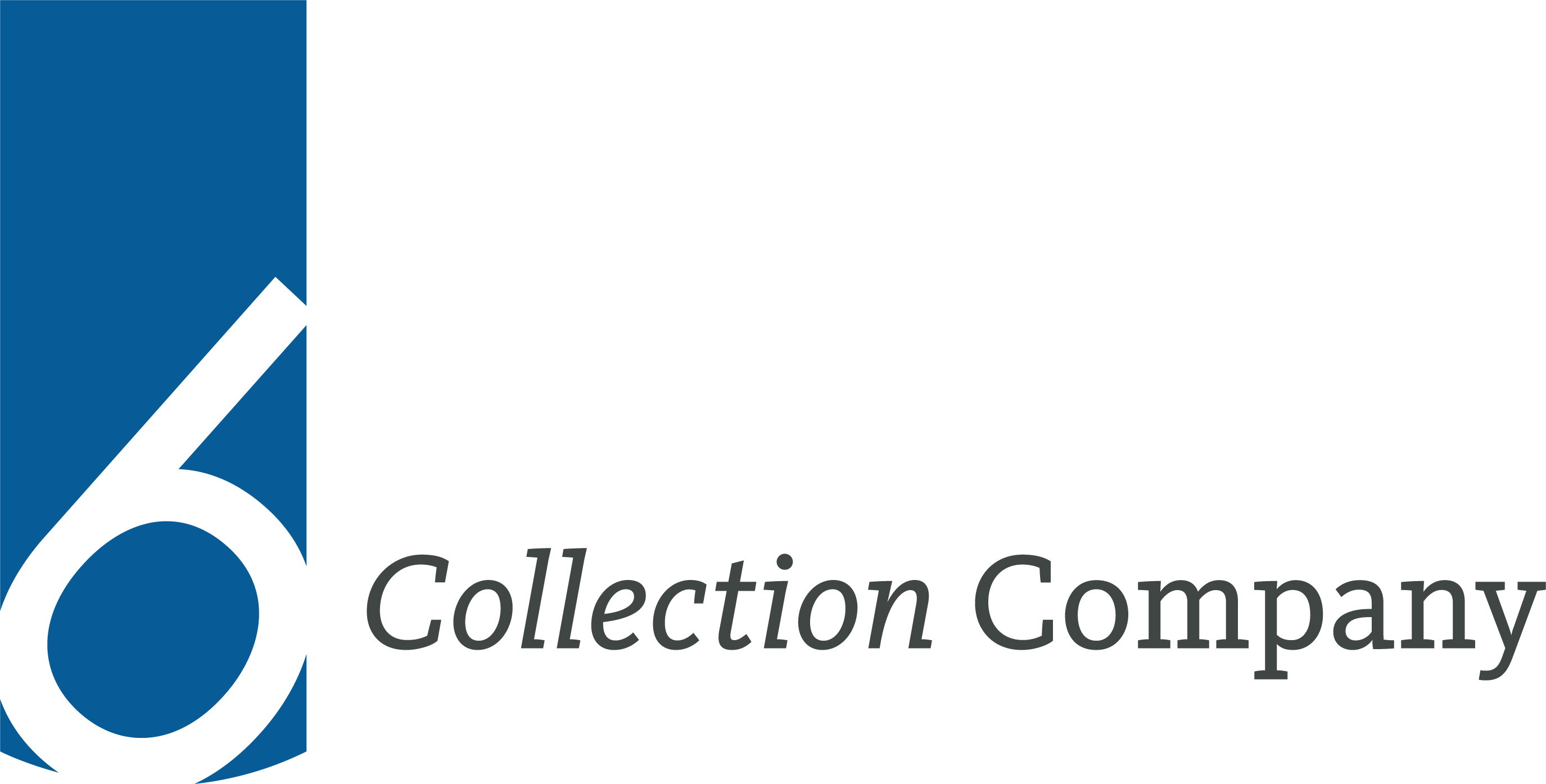The most advanced
debt collection in the England
Are you looking for a collection agency in England?
The English have their own customs and habits. Usually they are fast payers, but if you are not paid it is important to take immediate action. Only then will you be paid quickly. Collection Company is a specialist in foreign debt collection. Read here how we use our collection services in England to collect payments across the border and what you can do yourself.
- National coverage in England
- Knowledge of local laws and regulations
- Your own personal contact
- Extensive advice on the legal process
- Proven track record in international debt collection
- Monitor the status of your case 24/7
Extrajudicial debt collection England
Effective debt collection in England starts with a formal notice of default, a so-called Letter Before Action. Don’t worry, we will draft and send it for you. With this formal letter we give your debtor a final deadline to make payment or repayment. Such a notice of default is mandatory, by the way. English people are quickly impressed when they receive a letter from a debt collection solicitor. Nine times out of ten, we therefore collect your claim immediately. Still no payment? Then we discuss the legal steps for debt collection with you. You then choose whether you want to continue or not. Experience shows that 86% of all debt collections are resolved in this phase. Outsourcing your debt collection in England is therefore not rarely without merit.
Judicial debt collection England
The amount of the claim determines what course the court will follow to handle a dispute. The clerk of the court determines a treatment plan for a case, depending on the amount of the claim. Up to GBP 10,000, the “Small claims track” is followed, conducted by the so-called Bailiff’s Court. Claims between GBP 10,000 and GBP 25,000 are handled by the County Courts with the “Fast track procedure”. Claims higher than GBP 25,000 are handled by the High Court with a so-called “Multi track procedure”. The “Small claims track” is characterized by a simple and fast procedure, in a “Multi track procedure” complex cases are investigated to the bottom.
Unique in England: Publication of the convicted creates additional pressure
In England, convictions made by the court are published centrally for the duration of 6 years (!).
Everyone in England knows this. Many debtors therefore want to avoid this. The publication of a conviction results in a poorer credit rating and makes it more difficult, for example, to take out loans. Publication is a proven success tool for debt collection in England.
The legal procedure in debt collection England
Legal proceedings in debt collection Russia begin by filing a reasoned petition with the appropriate court, located in the debtor’s region. Within a month there will be an initial hearing, at which debtor and creditor will be heard, along with their lawyers. Usually there is a judgment within three to four months. Within one month after the verdict, a party can appeal. And only if that has not happened can the creditor apply to the court for an enforcement order. With this, an attachment can be made.
De High Court Enforcement Officer en de County Court Bailiff bij incasso Engeland
Failure to comply with an order to pay means seizure. Seizure is also called execution in England and the law contains a wide spectrum of options for seizure. As a foreign creditor, you also benefit from this.
The High Court Enforcement Officer (also abbreviated to HCEO) is the designated person to execute a verdicht with a total value of more than GBP 600 and up to GBP 25,000 and – as an external party – receives exclusive instructions from the court. The HCEO operates alongside a regular County Court Bailiff, who is only authorized to collect judgments with a value of up to GBP 600 (or debts covered by the Consumer Credit Act). A County Court Bailiff is a civil servant and employed by the court. In practice, the intervention of an HCEO – who is not employed by the court itself – has proven to be more successful, as the HCEO also works in the evenings and has the power to enter your debtor’s home.
How does seizure in England work?
Generally all, attachable, goods and monies can be seized by debt collection England.
Garnishee Order
CCJ records are collected by garnishment, also known as Garnishee Orders. A third party, such as a bank, must then pay the balance in an account to the bailiff. This also applies if, for example, an attachment is made against a customer of your debtor: the attachment ensures that the debtor’s customer must pay to the bailiff, on behalf of you as a creditor and no longer to your debtor. Requests for garnishment go through the court, with the collection England lawyer making a request on the spot. Your debtor knows nothing about the garnishment until it is made. Only the balance struck on the account at the time of attachment is subject to the attachment, just as in the Netherlands.
Attachment of Earnings Order
Another commonly used method of attachment is attachment of earnings. Also in England, as in the Netherlands, part of the income is not subject to attachment. In the event of a garnishment, a benefits agency or employer may no longer pay a large portion of the income to your debtor and must remit it to the creditor. This garnishment works by submitting an application to the court, which then grants permission. This is how we collect the debt for you at debt collection England.
Judgment Order
Attachment of real estate is another effective attachment method in debt collection England. Think, for example, of the seizure of business premises or residential property. All attachments are registered in the Land Registry. If your debtor only partially owns a plot, only the part that belongs to him is seized. Unfortunately, in England, unlike in the Netherlands, the person levying the seizure cannot proceed with the sale of the seized plot. The seizure remains in place, however, so the money is released when the property is sold.
Information Order
If it is uncertain whether your debtor has assets and how much, you simply have the debtor explain this to the court. With a so-called Information Order, your debtor is summoned to appear at court to declare his assets, debts and expenses. If your debtor does not appear, your debtor can even be taken into custody for a short time. With the Payment Order procedure, it is possible to make payment agreements during the hearing. The judge lays these down in a record, a so-called Variation Order. Are agreements not kept? Then this Variation Order can also be used to seize all the assets. Often – incidentally – starting this procedure is enough to get your debtor to pay, after you have obtained a County Court Judgment (CCJ).
Winding up proceedings: requesting that the company be wound up as a means of collection
If your debtor has been convicted as a company and still does not pay (voluntarily), debt collection England offers a special other option. If the claim in the County Court Judgment (CCJ) is more than GBP 750, a request can be made to liquidate the company. This means that all debts and assets are identified and settled. The debt collection England lawyer prepares a petition and sends it to the court. The court sets a date on which the petition for liquidation will be dealt with and summons your debtor to appear.
Unlike in the Netherlands, the petition for liquidation is published in the London Gazette 7 days after the court has summoned your debtor. This also means that from that date your debtor’s bank account will be frozen (!). A debtor knows this and will of course do everything possible to pay. Other creditors who also read the newspaper may report to the collection England lawyer or the court as creditors, which the debtor who has something to lose obviously wants to avoid.
Filing a request for settlement is a very effective and fast method within judicial debt collection England. Our debt collection England specialists will be happy to tell you more about it.
Applying for the bankruptcy of your debtor with debt collection England as a means of collection
If the total sum to be paid in the County Court Judgment (CCJ) is more than GBP 5000, filing for bankruptcy proceedings is also an ultimate collection method. The proceedings start with a formal final demand or indication of the claim, which must be served on your debtor (proof of receipt is required), the so-called Statutory Demand. After receipt, your debtor has 21 days to pay.
The Statutory Demand, for which the government has developed standard forms, states*:
Warning!
This is an important document. You should refer to the notes entitled “How to comply with a statutory demand or have it set aside”.
If you wish to have this demand set aside you must make application to do so within 18 days from its service on you.
If you do not apply to set aside within 18 days or otherwise deal with this demand as set out in the notes within 21 days after its service on you, you could be made bankrupt and your property and goods taken away from you.
Please read the demand and notes carefully. If you are in any doubt about your position you should seek advice immediately from a solicitor, a Citizen Advice Bureau, or a licensed insolvency practitioner.
*Statutory Demand under section 268(1)(a) of the Insolvency Act 1986. Debt for Liquidated Sum Payable Immediately
No payment yet?
Then the debt collection England lawyer files a petition for a declaration of bankruptcy, the so-called bankruptcy petition. The court sets a date on which the petition for bankruptcy will be handled and summons your debtor to appear. This petition must also be served on your debtor in person (proof of receipt is required). At the hearing, your debtor can then be declared bankrupt. A receiver (Official Receiver) is appointed and he will liquidate your debtor’s assets.
Practice has shown that over 90% of all claims for which bankruptcy is applied for are still settled at this stage, either all at once or with a settlement. It is not for nothing that we have many hundreds of petitions for bankruptcy filed by the collection England lawyer every year.
Freezing Order of provisional attachment
In England, it is possible to have a prejudgment attachment imposed on your debtor’s assets before starting proceedings on the merits. The levying of a prejudgment attachment can be interesting if you expect that your debtor will misappropriate his assets or as a means of exerting pressure to start negotiations. Whether attachment is advisable in your specific case depends on numerous invoices. Our England collection specialists will be happy to discuss this with you.
Tracing services
We notice that there is a great need for debtor tracing. In England, we work together with several reputable firms that are specialised in tracing debtors and mapping out, for instance, recovery information and assets. It is certainly advisable to consult your debtor’s recovery report when dealing with larger claims, as part of your debt collection strategy in England. With us, you have come to the right place: we ensure that you receive useful information.
Collection Copmany is active in alle regions in Engeland
Since 1994, England has been officially divided into 9 regions, each in turn divided into Counties. The nine regions are:
1. Greater London
2. South East
3. South West
4. West Midlands
5. North West
6. North East
7. Yorkshire and the Humber
8. East Midlands
9. East of England
What do you need for your debt collection England file?
Starting a debt collection England file is easy. It is not a problem if you do not have all the documents. Send us what you do have. Our debt collection specialists will be happy to help you with this.
A copy of the agreements, for example an agreement, an email message, fax message or simply a WhatsApp message or a text message
- Copy of your invoices
- Copy of your reminders
- A copy of your general terms and conditions
- Any proof of delivery
Advantages of debt collection in England
- Nationwide coverage across England and Wales (as well as Ireland and Scotland)
- Customization of your file
Fast procedures aimed at results - One point of contact in the Netherlands
- 24/7 online access
- Expert information and clarity upfront
- Proven track record
Debt collection in England? Schedule your free consultation
Have you become curious about the possibilities? Then ask for a free initial consultation with a specialist in English law. With our local debt collection England network, no question needs to go unanswered.
Free advice on debt collection in England?
Fill in your personal information and plan your free consult

What else can we help you with?
- Having judgments enforced (seizure in England)
- Having various proceedings conducted under English law
- Advising on contracts and conditions
- Arranging for the attachment of property
- Providing credit information on debtors established in
- England
- Other legal proceedings
Jurisdictions debt collection England
We can help you with all civil claims against debtors in England. For example
- Construction law
- Rent and lease
- Purchase and sale
- Employment law
- Agency agreement
- Transport
- Damages and wrongful acts
If you have any doubts, feel free to contact us. Together with our collection specialists, we can look at your claim.
Dispute resolution
Of course, there may be a dispute about your claim. Disputes concerning the quality of deliveries, timeliness of performances, the amount of sums, etc., make dialogue necessary. In all cases where there are disputes, our debt collection lawyers in England will do their utmost for your claim.
Start today with Debt collection England
Do you have something to claim in England or Wales? Or a dispute with an English debtor? If so, debt collection in England is the right thing for you. Please feel free to contact us at +31-(0)70-762 0330 or send us an e-mail. Our European debt collection specialists will be happy to tell you more about the possibilities of debt collection in England and about (difficult) collectible debts on UK-based debtors.
- Upload your invoice online
- We'll start your case
- We'll start with the debt collection process
- Together we decide the best strategy for collecting your debts
- Monitor the status of your case 24/7
- Any questions? Your personal accountmanager will answer them all!
- Your invoice is payed
Why 40.000 customers tried our services
- The #1 collection company in the Netherlands and abroad
- Regional & local specialists
- Years of experience with international invoices
- Your own personal contact
- Extensive advice on the legal process
- Monitor the status of your case 24/7
Meet our specialized legal team
- Joost Konings LLMLaw expert
- May Leung LLMLaw expert
- Wesley Boeters LLMInterim lawyer


I had not heard from the company for a while after opening my case with them, I thought it may have been to do with the fact I am a UK resident and the company operates in the Netherlands. Eventually, I found an abundance of emails in my junk from incassocenter, and called the contact number provided in an email immediately. Even though I spoke English I was put through to the correct department immediately and minutes after delivered the good news; that my debt had been collected and I would be receiving a cheque with the total amount of monies by the end of the week. A special thank you to your employee Danny de Jon for his persistence and diligence when trying to contact me regarding my case, his efforts are truly appreciated.







